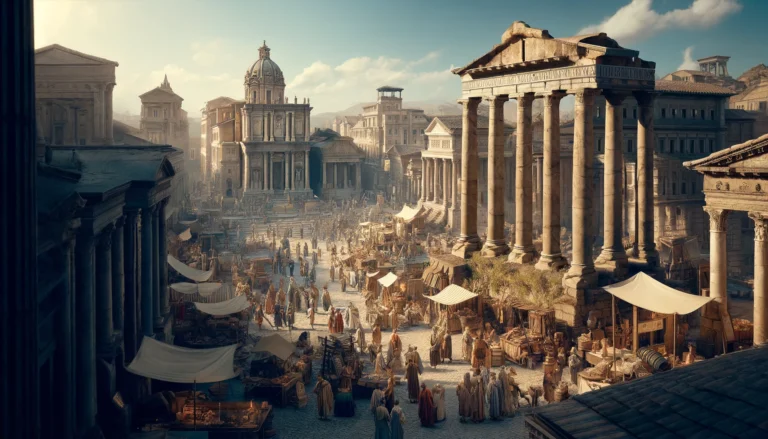Antiquità, a time period steeped in history and way of life, inspires images of grand empires, monumental structure, and the early achievements of human civilization. The word itself, derived from Latin, approach “antiquity” and is often used to consult the ancient beyond, especially the durations related to classical civilizations. This article delves into the captivating international of antiquità, exploring numerous facets of historic societies which have fashioned our modern-day global.
The Dawn of Civilization
The story of antiquità starts with the dawn of civilization in Mesopotamia, often hailed because the “cradle of civilization.” Situated among the Tigris and Euphrates rivers, this location saw the rise of the Sumerians around 4500 BCE. They evolved one of the earliest writing systems, cuneiform, which allowed them to record legal guidelines, alternate transactions, and literature. The Code of Hammurabi, one of the oldest deciphered writings of big period, is a testomony to their advanced legal device.
Mesopotamian contributions to human progress include the discovery of the wheel, the improvement of complicated irrigation systems, and the development of ziggurats—huge terraced structures that served each religious and administrative purposes. These improvements laid the foundation for subsequent civilizations to build upon.
The Splendor of Ancient Egypt
Moving westward, historical Egypt emerges as some other pillar of antiquità, renowned for its extremely good achievements in structure, art, and governance. The civilization flourished alongside the banks of the Nile River for over 3 millennia, beginning round 3100 BCE. The Great Pyramids of Giza, one of the Seven Wonders of the Ancient World, are enduring symbols of Egyptian architectural prowess and the society’s state-of-the-art information of arithmetic and engineering.
Egyptian tradition changed into deeply intertwined with its non secular ideals, which centered around a pantheon of gods and a difficult afterlife. The practice of mummification and the development of grand tombs, along with the Valley of the Kings, mirror their emphasis on existence after dying. Hieroglyphics, their difficult writing system, decorated temples and monuments, supplying insight into their records, mythology, and every day lifestyles.
The Glory of Ancient Greece
Ancient Greece, frequently taken into consideration the bedrock of Western civilization, brought innovations in philosophy, politics, and the humanities that preserve to influence the current world. Beginning within the 8th century BCE, Greek civilization became characterised by means of city-states like Athens and Sparta, every with its personal authorities and manner of existence. Athens, mainly, became a beacon of democracy, where citizens participated directly in selection-making processes.
Philosophers together with Socrates, Plato, and Aristotle laid the principles of Western philosophical idea, exploring principles of ethics, metaphysics, and common sense. In the arts, the Greeks excelled in sculpture, theater, and structure, with masterpieces like the Parthenon and the statues of Phidias showcasing their artistic brilliance. The Olympic Games, originating in Olympia, spotlight the Greek emphasis on physical fitness and aggressive spirit.
The Might of the Roman Empire
The Roman Empire, following inside the footsteps of the Greeks, elevated the affect of antiquità throughout Europe, North Africa, and the Middle East. From its legendary founding in 753 BCE to the autumn of the Western Roman Empire in 476 CE, Rome’s effect changed into great and enduring. The Romans are celebrated for his or her advancements in engineering, regulation, and governance.
Roman engineering feats encompass the development of significant street networks, aqueducts that furnished towns with water, and monumental structures just like the Colosseum and the Pantheon. Roman law, encapsulated in the Twelve Tables and later codifications, stimulated criminal structures for hundreds of years to return. The Pax Romana, a length of relative peace and stability, allowed for financial and cultural flourishing across the empire.
The Richness of Ancient India and China
Beyond the Mediterranean, antiquità also thrived in the civilizations of historical India and China, every contributing uniquely to human history. The Indus Valley Civilization, flourishing round 2500 BCE, became one of the international’s earliest city cultures, with advanced metropolis making plans, drainage structures, and standardized weights and measures. Later, the Maurya and Gupta empires noticed the consolidation of political strength and the flourishing of arts and sciences.
In China, the historical dynasties—from the Shang and Zhou to the Qin and Han—installed a rich tapestry of cultural and technological achievements. The Great Wall of China, the terracotta warriors of Xi’an, and the invention of papermaking and gunpowder are only some highlights. Confucianism and Daoism, two influential philosophical structures, formed Chinese society and governance for millennia.
The Legacy of Antiquità
The legacy of antiquità is profoundly evident in current society. The philosophical inquiries of the Greeks, the prison frameworks of the Romans, the architectural marvels of the Egyptians, and the technological innovations of the Mesopotamians continue to inspire and inform contemporary notion and exercise. Moreover, the historic texts and artifacts unearthed by way of archaeologists provide a window into the lives and minds of our ancestors, fostering a deeper expertise of human history.
Antiquità additionally serves as a reminder of the cyclical nature of civilizations, in which durations of amazing success are regularly observed by using decline and rebirth. This attitude encourages us to reflect on our own time and the contributions we might make to the ongoing narrative of human development.
In end, the observe of antiquità isn’t merely an exploration of the past but a adventure into the roots of our gift and destiny. By appreciating the achievements and classes of historical civilizations, we benefit valuable insights into the iconic human spirit and the perpetual quest for know-how and improvement.
